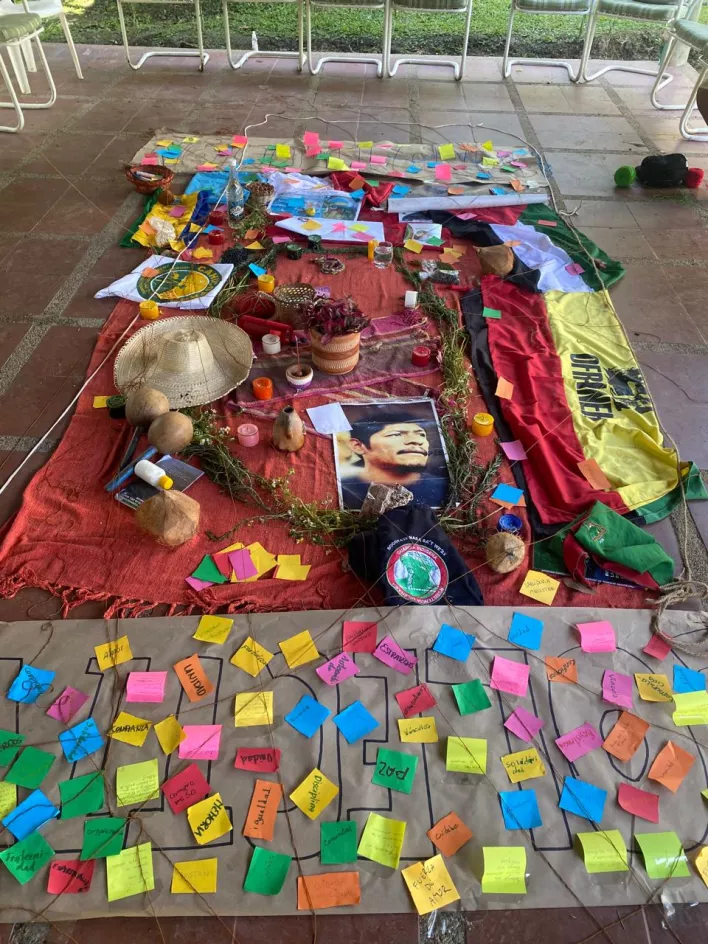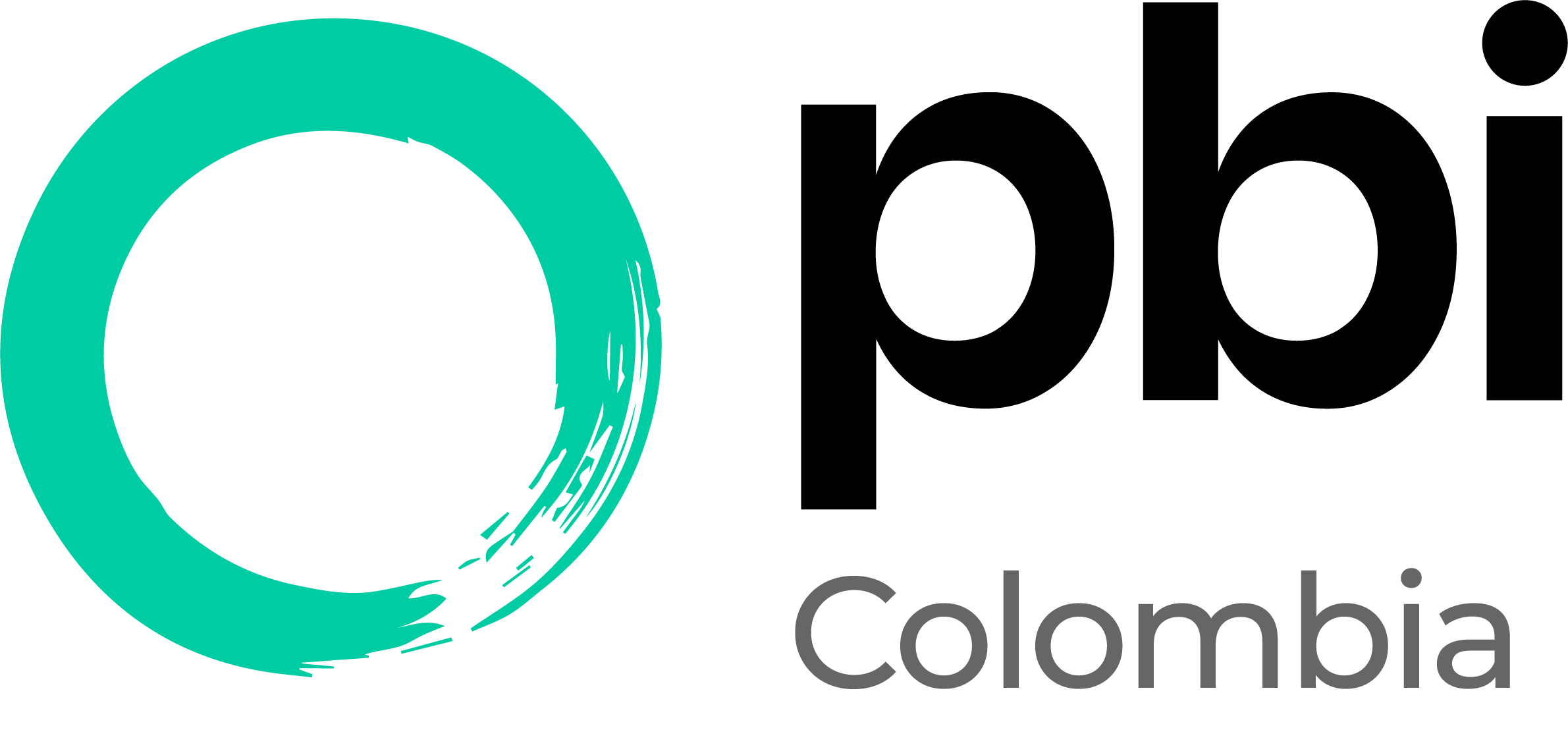Support for the Reconstruction of the Social Fabric (ARTS for its Spanish abbreviation). This axis of work supports human rights organizations and communities in the reflection and construction of comprehensive protection tools. Our goal is to create safe spaces that allow conversation and analysis within and between Colombian organizations, in order to strengthen them in the face of the impacts of socio-political violence. PBI Colombia wishes to share all the learning of the organization over the years in terms of integral protection.

Comprehensive protection
We understand comprehensive protection as everything we do as individuals and organizations to provide ourselves with tools that make us feel safe. We understand that security is not a merely objective element, but is constructed according to the subjectivities and the historical, geographical, cultural and political contexts of organizations and communities. Thus, security is not taken for granted, but is constructed and reconstructed according to these contexts. We build security taking into account all its dimensions: a) territorial, community and project, b) group and relational, c) psycho-emotional and corporal and d) of meaning or spiritual.

We understand that protection is not only the measures we take against physical and political risks due to the work we do, but also against group, relational, psycho-emotional and spiritual risks. In other words, we focus on the risks we face when faced with the possible rupture of the social fabric (such as the escalation of conflicts or the increase of mistrust). That is why we always work with the circle of integral protection, taking into account the interdependence between all the dimensions of integral protection mentioned above. They are not isolated dimensions, they all occur at the same time. The inner circles (group, psychoemotional and meaning) are dimensions that have been worked historically from the psychosocial and feminist contributions around care. We understand, therefore, that there is no comprehensive protection without a psychosocial or differential approach that takes into account cisheteropatriarchal, colonial, racist, ageist, capacitarian, biocidal, etc. power relations.
Psychosocial and protection work
Psychosocial work is that which seeks to strengthen community capacities and revalue the resilient capacity of people, intervening on personal and community bonds. In the case of the ARTS area, given PBI’s expertise in protection issues, we work from the following capacities:
Thematic capacities:
- context analysis, risk analysis, actor analysis, introduction to comprehensive protection, digital security, organizational and community strengthening, building care tools, working on the impacts of violence on bonds, dreams and bodies, and so on.
Methodological skills:
- Popular education and collective construction of knowledge. We start from pedagogical tools that revalue lived experiences and build meanings from them.
- Art and creativity: dance, theater, singing, drawing…. We use artistic tools that help develop creativity, understanding this as the ability to find new ways out of conflicts and challenges.
- Facilitation and strengthening of groups. We understand that the group and the links between the people who make it up is the basis on which to reflect and from which to build spaces.
- Contributions of social movements. We are inspired by the questioning of power and transformative bets of social movements that think the world from autonomy.
Emotional skills:
- Emotional containment: is everything we do to generate safe environments where people can express their emotions, feeling accompanied, listened to and understood, while at the same time supported so that the expression generates an emotional outlet and never a revictimizing overflow. Emotional containment allows for an outlet for what is being experienced, from collectivity and empathy.
- Emotional education: is everything we do to reflect on the functioning of the mind, body and emotion in the face of violence, identifying impacts and replicating tools that allow for collective care and well-being.
- Emotional transformation: is everything we do to intervene in groups, strengthening bonds, reconnecting with hope and the meaning of human rights work, allowing dialogues and reflections on communication and conflict transformation.
How we do it: type of spaces that ARTS accompanies

- Interventions or linkages that require several sessions and are repeated over time. It can be a process of protocol development, organizational strengthening, care for psychosocial impacts, and so on. It is essential, at the beginning of these processes, to establish with the group in question: objectives, expectations, roles and times.
- In addition to what is created in the workshop itself, it allows to make known the work and approach of ARTS, strengthen its security analysis, identify psychosocial states of the accompanied organizations and reinforce the physical accompaniment and networking
- Working with coexistence of several days with a specific objective. These spaces allow articulation between different organizations and we can propose them proactively from PBI, such as the National Meeting of Women Defenders.
- Specific support through a conversation or meeting where we can share tools, visions, analysis or recommendations.
- Support in connecting organizations, digital security referral with Karisma and referral for individual psychosocial support with psychosocial accompaniment organizations.
Organizations ask us directly or through other teams and areas of PBI for accompaniment and, to the extent of the area’s capabilities, we respond. The whole process arises from the needs and requests of the organizations themselves, having, in most cases, the following route:
- Request for the space and communication of the needs and objectives of the same.
- Development by ARTS of a methodological proposal.
- The methodological proposal is shared with the organization to assess its suitability.
- The workshop is held.
- The workshop is evaluated with the organization.
The priorities of ARTS will be marked by those decided in the PBI assembly, as well as by the urgency (due to the organization’s risk situation) or the strategic nature of the accompaniment. Following the mandate of ARTS to introduce feminist and anti-racist political debates within PBI, we will also prioritize with a differential perspective the organizations generally deprioritized by the hegemonic system: rural, communities affected by structural racism (Afro-Colombian and indigenous), women and non-binary people.
What ARTS does NOT do
In the work of the area there are several elements that we do not do:
- We do not elaborate protocols for the organizations, it is they themselves who lead it with the accompaniment of the area in the reflective and evaluative process.
- We do not facilitate collective spaces for political reflection.
- We do not accompany psychotherapeutic spaces, neither individually nor in groups. The psychosocial work of the area does not work directly with trauma or the pain stories of the communities and organizations, at the risk of generating revictimizing scenarios due to not being able to sustain in the long term the emotional movement that this generates.
- We do not provide individual accompaniment in the medium or long term.
